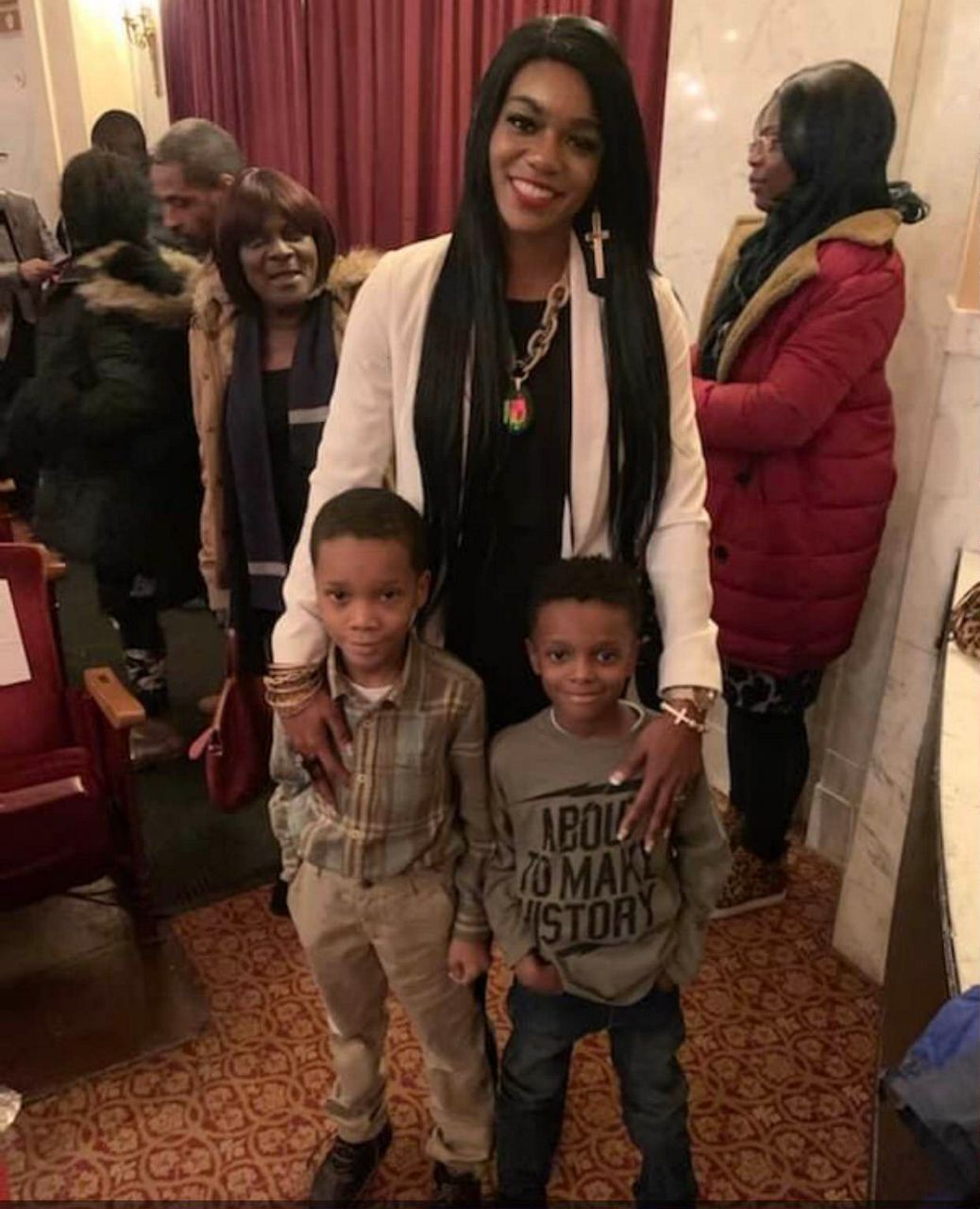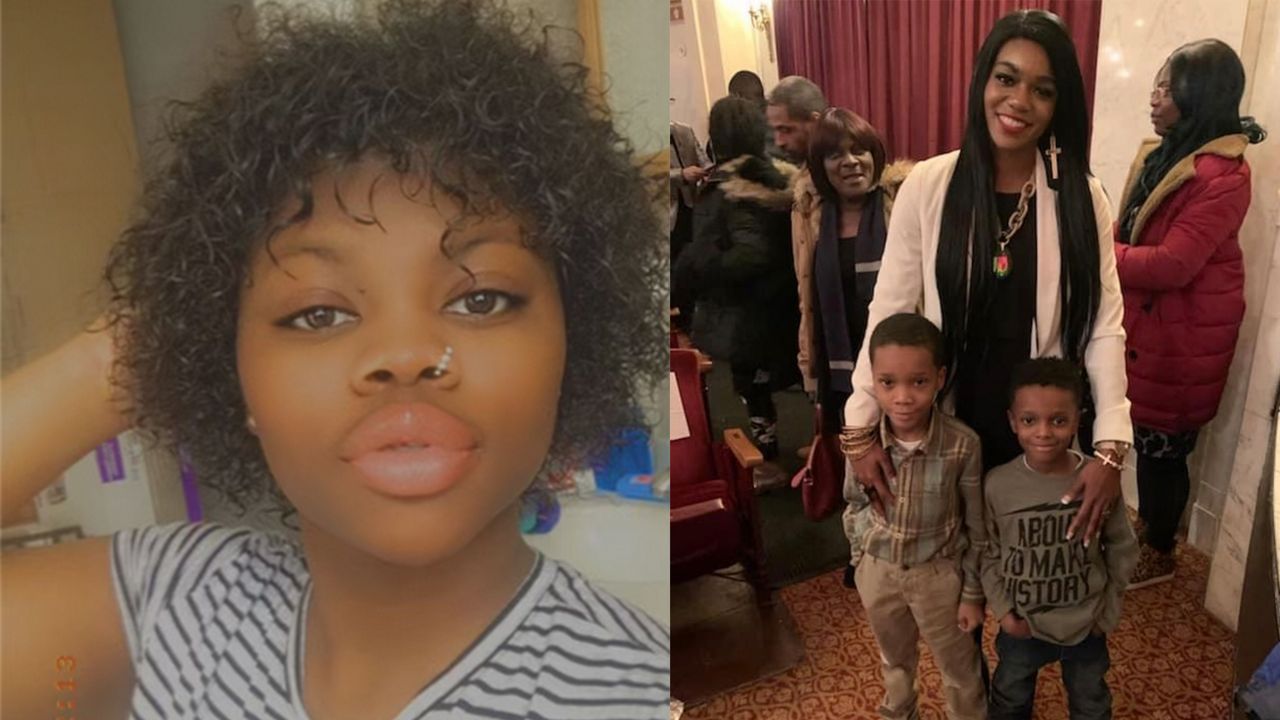CLEVELAND — According to the Law Enforcement Automated Data System, approximately 70% of the women reported as missing in Cuyahoga County in the month of October were Black women, however census data shows that Black people account for about 30% of the population in the county.
Data from the FBI’s National Crime Information Center’s Missing Person and Unidentified Person Files reports in 2020, Black people accounted for approximately 34% of missing persons cases, while only making up a little more than 13% of the country’s population.
In 2016, an analysis from the Northwestern University School of Law studied the phenomena they coined "missing white woman syndrome." The analysis studied the amount and frequency of coverage on missing persons, their genders and their race from articles published by CNN, The Minneapolis Star Tribune, The Chicago Tribune and The Atlanta Journal-Constitution in 2013.
It found that missing Black people were significantly underrepresented by the four outlets when compared to the number of Black people reported missing by the FBI. With regard to gender, missing women were overrepresented. Results on the coverage intensity of missing persons show that white people disproportionately make up the articles studied and white women make up almost half of the article population.
More recently, following the disappearance of Gabby Petito, a white 22-year-old woman who went missing in Wyoming during a cross-country trip with her boyfriend, many have questioned the media’s coverage of missing people of color as well as police departments’ urgency in those cases.
In the Cleveland area, the families of Audreona Barnes and Rajah McQueen are also questioning these statistics.
Audreona Barnes was last seen on July 30 at the corner of Laumar Avenue and Warner Road. Rajah McQueen has been missing since June 26, when she was last seen in the passenger seat of her 2018 Nissan Sentra at a gas station on East 131 Street and Harvard Avenue.
“I don't think that enough attention goes to missing women, missing children period, and in our communities missing persons period,” said Akua Avegnon, Barnes' mother.
The oldest of four children, Audreona Barnes, 19, was often called "Big Baby" by her family.
“Audreona is a fun-loving person,” said Avegnon. “She’s caring. She'd give you anything that she could do to help you. That's her.”
Barnes graduated high school at 17, and despite her mother’s reservations, she had aspirations to enlist in the United States Army Reserves. She met with an Army recruiter on July 30, the same day she went missing.
Barnes had slept at her boyfriend’s house the night before on July 29. Avegnon, Barnes' mother, said that her daughter called her after the meeting with the recruiter at around 2:30 p.m. The two agreed to speak later that evening.

At around 7 p.m., Avegnon’s boyfriend received a text from Barnes’ cell phone asking for a ride from her new job at a gas station.
Immediately, Avegnon was skeptical because earlier that day, her daughter told her she received an offer from a factory. Barnes didn’t respond to texts regarding the new job, but she did respond confirming she’d be home the following day, July 31, for her mother’s birthday.
“No matter where I'm at — I could be at work. If she was out, when midnight hit, even if we ain’t home, she's in there, ‘Mom, happy birthday,’” Avegnon said. “She's got to be the first person to say ‘Happy birthday.' That is not like her, especially seeing that she helped my boyfriend pick out my gift, buy the cake.”
Greggory Curry of the Warrensville Heights Police Department is the detective assigned to Barnes’ case. He said he has exhausted every lead, but is stalled at a dead-end.
“I've checked every area that I could," he said. "I have nothing. I have no way of tracking her.”
At this point in his investigation, Curry doesn’t have evidence to prove that foul play was involved in Barnes’ disappearance.
“I understand to a parent, this is extremely suspicious,” he said. “And as parents, we always think the worst when it comes to our kids. But nothing during my investigation is pointing me toward foul play.”
Avegnon feels that there are too many questions left unanswered and not enough resources used in her daughter’s case.
“I don't think wherever she is she went on her own because if you know her, you know Big Baby always has her phone,” she said. “Like no matter what she’s doing, she has her phone. She's not going to not communicate with anyone.”
Despite not knowing where her daughter is, Avegnon said the most difficult part is helping her younger children understand their current reality.
“It’s hard,” she said. “It's hard when the little kids go, ‘Mom, we miss Audrey. Where’s Audrey at?’ That's hard. To think about what she could be going through, and I'm sitting in the living room or I'm driving down the street. You know, how safe is she? That's hard to think about.”
Rajah McQueen, 27, is the mother of two young boys. She is the youngest of eight children, and when she walked into a room, all eyes turned to her, said her sister, Briana McQueen, and cousin, Alicia Kirkland.
“Her personality matched her dress code,” Kirkland said. “She knew how to turn a garbage can into a photoshoot.”
In addition to her style, McQueen is a woman of many talents. She is a certified nursing assistant, a student and a singer/rapper.
“When Rajah had her mind set to something, that was it,” said Kirkland.
Her family said she radiated confidence. When she walked into a room, everyone noticed. She passed that down to her sons who were always dressed as well as their mom.
“When you looked at her — she loved to look pretty. She took pride in the way she looked,” Kirkland said. “She loved to have her sons look pretty. They were always dressed nicely.”

At the time of her disappearance, McQueen was a student studying music at Rosedale Bible College. Her faith was important to her, and it’s evident in her music. In the opening lines of her EP “Warfare Born Again,” she raps, “Got on my knees, my soul used to be, I cried out to God and he gave me peace.”
For these reasons, her family believes that she did not disappear on her own.
“When you’re connected to someone, you notice something that will never happen on her end such as disconnect herself from her family,'' said Rajah's sister, Briana McQueen. “Something happened to my sister because you can just feel it sometimes.”
Cameras operated by the City of Cleveland show McQueen in the passenger seat of her 2018 Nissan Sentra on June 26 at 7:30 a.m. at a gas station on East 131 Street and Harvard Avenue.
Surveillance video shows the car leaving the gas station, and then reemerging about three hours later heading west on Harvard Avenue toward Broadway Avenue, only this time McQueen isn’t in the vehicle. What appears to be a bullet hole can be seen on the passenger side of the car, and the hubcaps and the license plate listed to McQueen were removed. Police said the vehicle has not been seen since.
“As time goes on, there’s more of an inner strength that builds in you where the tears dry up and you want answers,” Kirkland said.
The Cleveland Police Department has made advances in McQueen’s case, according to Kevin Callahan, the detective in CPD’s fourth district. He said that more than 1,000 hours have been put into the case, recruiting other agencies as well to get search warrants, pull phone records and conduct searches using drones, helicopters and canines.
“We've scoured that area with drones, helicopters, foot beats, zone cars — you name it, (and) cameras,” he said. “We’ve had everything over in that general area trying to find, if nothing else, the car.”
Kirkland and the McQueen family said Callahan has been in constant contact with them, offering updates, explaining leads and even offered a listening ear when they have an intuition about Rajah’s whereabouts.
“Even on days where there's no news, he still calls and he just says, ‘Listen, we're still throwing forward. You know, this is a little bit of a tougher case to crack but we are pushing forward,’” Kirkland said.
These two families have more in common than just the tragic circumstances they’ve found themselves in. Both have turned to grassroots organizations and taken action on their own to help locate their missing loved ones.
Judy Martin is the founder of Survivors Victims of Tragedy Inc. and the secretary of Black on Black Crime Inc., whose mission it is to work with families of homicide victims and families of missing persons. Martin has been doing this work since her youngest son was killed in Cleveland in 1994.
“If I didn’t have a reason to go out there and hope that we’re trying to stop the violence or to help a family find their child, I wouldn’t have a purpose,” Martin said.
Since then, families have reached out to Martin for help with making fliers, organizing rallies, searches and urging law enforcement to take their cases more seriously. A lack of urgency from law enforcement is something Martin and many families of color believe is a result of race.
“If you’re white, you’re looked for,” Martin said.
Martin partners with other local organizations, like Knowledge Youth Organization, and their quick action response team to conduct searches, create posts for social media and post fliers around Cleveland.
“We want people to know that to the best of our ability, you call us, tomorrow you’re going to have a flyer if I can get the picture and information,” Martin said. “If not, it’ll be within a couple of days and we’ll have a rally within a couple of days. As soon as you want. As soon as we can put it together.”
Martin and Darlene Wilson, office assistant and president of Knowledge Youth Organization, said they took charge in searches for missing persons because they were tired of feeling disappointed by a lack of urgency from certain law enforcement offices.
“Us seeing the police not being involved how we wanted to, we just basically took matters into our own hands,” Wilson said. “Found somebody who was missing, called Judy, she made the fliers, went out and did the footwork.”
Knowledge Youth Organization has helped find dozens of missing persons in northeast Ohio.
A number of factors are involved in solving a missing persons case, but staffing shortages have been one clear disadvantage to various police departments throughout the Cleveland metropolitan area.
In Warrensville Heights, Curry is one of three detectives in the general detective bureau in a city with a population of around 13,000 people. Curry said he works on cases ranging from missing bicycles and dogs to missing persons, aggravated robberies and homicides.
In the City of Cleveland, each of the five police districts has one detective assigned to missing persons cases as well as a patrol officer on each shift who responds to those cases.
Despite these concerns, Kirkland insists that in these situations, it’s vital for family members to get feet on the ground and to talk to as many people as possible if they are able.
“It's very important as a family when you do have a missing loved one, you cannot depend on the system alone,” Kirkland said. “You have to get your feet on the ground. That is what is going to make the difference. I don't care if you got to go protest. I don't care if you have to hold up a million signs. I don't care if you get a Facebook page dedicated to that person and share and share and share.”
And that’s exactly what Avegnon has done for the last few months.
Recently, Avegnon held a rally alongside Martin down Warner Road in Cleveland. Three cars rode alongside her while she and two others who knew Barnes posted fliers on telephone poles and offered them to drivers of the cars they waved down.
“My daughter knows that I’m not gonna stop until I find her, and I’m not gonna quit, because if I quit, then who finds her?” Avegnon said. “She matters to me.”
More than 600,000 individuals go missing in the United States every year, according to the National Missing and Unidentified Persons System (NamUs). Many are found alive, but tens of thousands remain missing for more than one year. NamUs estimates that 4,400 unidentified bodies are recovered each year.
To register a missing person in the NamUs database, visit the website, create a public user account and record the person’s information. The information will be vetted before being published in the system.
To report a missing person in the Cleveland area, contact the CPD to file a report, Martin at Survivors Victims of Tragedy Inc. or the Knowledge Youth Organization on Facebook. To submit a tip or view missing persons, visit Cuyahoga County Crime Stopper’s website.
Please contact Detective Kevin Callahan at the Cleveland Police Department Fourth District office with information regarding Rajah McQueen’s case at 216-623-5400.
With information regarding Audreona Barnes, contact Detective Gregory Curry at the Warrensville Heights Police Department at 216-581-1234.
Nov. 22 Editor's Note: Audreona Barnes name was misspelled in the story. We've correct the error and regret the mistake.



